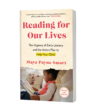I would like to designate December National Quitting Awareness Month. After reading Seth Godin’s The Dip: A Little Book That Teaches You When to Quit (And When to Stick), I’m fired up to pare down before the New Year.
The slim volume argues that quitting (despite its poor reputation) is a key to success. Quit fast. Quit often. Quit without guilt, Godin urges. Because quitting worthless pursuits gives you the time, energy, and focus to obsess about something that matters.
“Just about everything you learned in school about life is wrong, but the wrongest thing might very well be this: Being well rounded is the secret to success,” he writes. “In a free market, we reward the exceptional.” And the exceptional have learned to quit strategically.
Godin argues that when you trade busyness for obsession, you win. When you spot a dead end a mile away and reverse course, you win. Never underestimate the costs of staying stuck, he warns. Dead-ends are not neutral. Idling burns gas and keeps you from going somewhere exciting. Quitting unworthy projects, investments, and endeavors is the shortcut to success.
Most people quit reactively. “They quit when it’s painful and stick when they can’t be bothered to quit,” he writes. His advice? “The next time you catch yourself being average when you feel like quitting, realize that you have only two good choices: Quit or be exceptional. Average is for losers.”
The “dips” that the book’s title refer to are the exceptions to the quitting rule. Unlike dead ends, Godin’s dips are temporary. They’re the barriers that thwart most but reward those who tough it out. “Your marketplace is competitive, filled with people overcoming challenges every day,” Godin writes. “It’s the incredibly difficult challenges (the Dips) that give you the opportunity to pull ahead.”
He’s talking about entrepreneurship, but we can apply the insight to any period when our motivation is tested and our resources are stretched for our good. If excellence were easy, everyone would do it, and no one would profit, he insists.
Godin does advocate some quitting when laboring through a dip. Quit tactics, products, and features without hesitation while staying true to your market, he advises. The larger aim is to be a trusted source to a specific audience, not to foist an unwanted product on it. “Don’t fall in love with a tactic and defend it forever,” he writes. “Instead, decide once and for all whether you’re in a market or not. And if you are, get through that Dip.”
After reading The Dip, I’m examining all of my activities and deciding which are worthy of my time and talents. The resentment and fatigue that accompany some are sure signs that it’s time to move on. Cutting my losses, I now see, will give me the resources I need to tough out the dips in the commitments that matter. Why cope when you could quit? Why muddle along when you could push through?
Have you been stuck in a rut with work, personal, or volunteer projects this year? How do beliefs about quitting shape your decisions to continue or discontinue activities? Are some things easier for you to quit than others? If so, why?
Quote to Remember
“A woodpecker can tap twenty times on a thousand trees and get nowhere, but stay busy. Or he can tap twenty thousand times on one tree and get dinner.” – Seth Godin


